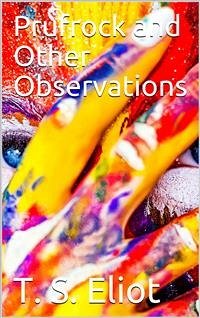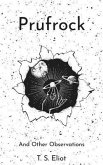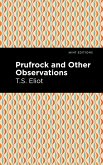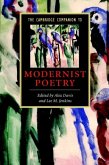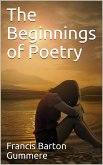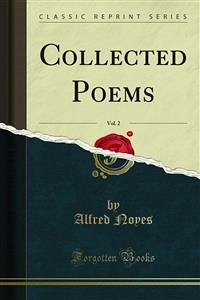"The Love Song of J. Alfred Prufrock", commonly known as "Prufrock", is the first professionally published poem by American-born British poet T. S. Eliot (1888–1965).
The poem's structure was heavily influenced by Eliot's extensive reading of Dante Alighieri and makes several references to the Bible and other literary works—including William Shakespeare's plays Henry IV Part II, Twelfth Night, and Hamlet, the poetry of seventeenth-century metaphysical poet Andrew Marvell, and the nineteenth-century French Symbolists. Eliot narrates the experience of Prufrock using the stream of consciousness technique developed by his fellow Modernist writers. The poem, described as a "drama of literary anguish", is a dramatic interior monologue of an urban man, stricken with feelings of isolation and an incapability for decisive action that is said "to epitomize frustration and impotence of the modern individual" and "represent thwarted desires and modern disillusionment".
Prufrock laments his physical and intellectual inertia, the lost opportunities in his life and lack of spiritual progress, and he is haunted by reminders of unattained carnal love. With visceral feelings of weariness, regret, embarrassment, longing, emasculation, sexual frustration, a sense of decay, and an awareness of mortality, "Prufrock" has become one of the most recognised voices in modern literature.
The poem's structure was heavily influenced by Eliot's extensive reading of Dante Alighieri and makes several references to the Bible and other literary works—including William Shakespeare's plays Henry IV Part II, Twelfth Night, and Hamlet, the poetry of seventeenth-century metaphysical poet Andrew Marvell, and the nineteenth-century French Symbolists. Eliot narrates the experience of Prufrock using the stream of consciousness technique developed by his fellow Modernist writers. The poem, described as a "drama of literary anguish", is a dramatic interior monologue of an urban man, stricken with feelings of isolation and an incapability for decisive action that is said "to epitomize frustration and impotence of the modern individual" and "represent thwarted desires and modern disillusionment".
Prufrock laments his physical and intellectual inertia, the lost opportunities in his life and lack of spiritual progress, and he is haunted by reminders of unattained carnal love. With visceral feelings of weariness, regret, embarrassment, longing, emasculation, sexual frustration, a sense of decay, and an awareness of mortality, "Prufrock" has become one of the most recognised voices in modern literature.

